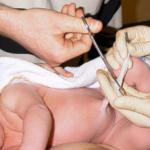There is little doubt that when it comes to more complex care, experience, be it the physicians or their affiliated institutions, is a crucial determinant.
cancer
It is only appropriate that during the week that honors National Pet Day research that supports using the superior snouts of dogs for cancer screening was presented at the annual Experimental Biology 2019 meeting of the
Despite advances in radiation and chemotherapy, surgery, and often time complex surgery remains an important tool for treating cancer.
The headlines are rampant lately about “a mysterious and deadly fungal infection..spreading across the globe” that identifies multidrug-resistant yeast, Candida auris, as a “new fungal superbug.” And, as is common with such alarming heade
Nature Reviews: Drug Discovery just published the top ten drugs by sales globally in 2018 as well as the top ten companies by sales of prescription and over-the-counter drug
Expectant parents are bombarded from all directions about what they should or should not worry about before the baby is even born - not that this ever stops after delivery.
Given unintentional injuries are the #1 cause of death among people ages 1 to 44 with 97% to 99% of those caused by our own errors and mistakes (e.g.
Today is World Cancer Day which means we internationally encourage raising awareness about cancer while promoting and supporting efforts in prevention, early detection and advancement in treatments.
A company made grand pronouncements about revolutionizing cancer treatment claiming their discovery is so disruptive that, according to its
You may be seeing a bunch of headlines from CNN’s “US cancer death rate hits 25 years of decline, study says” to the Wall Street Journal












